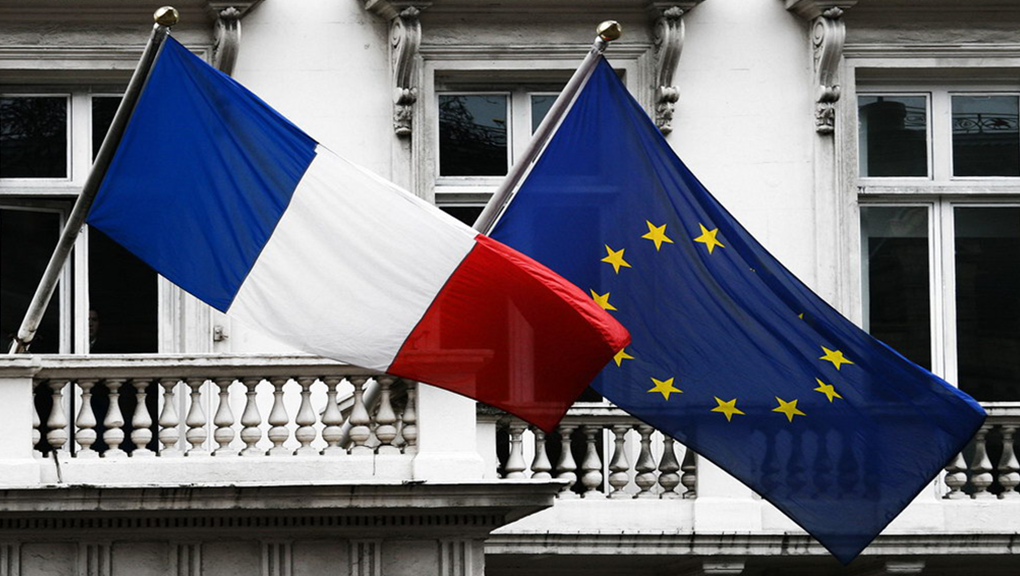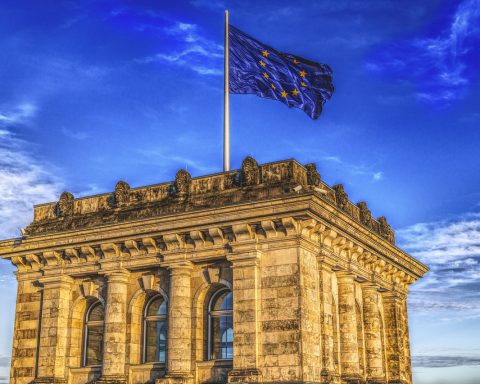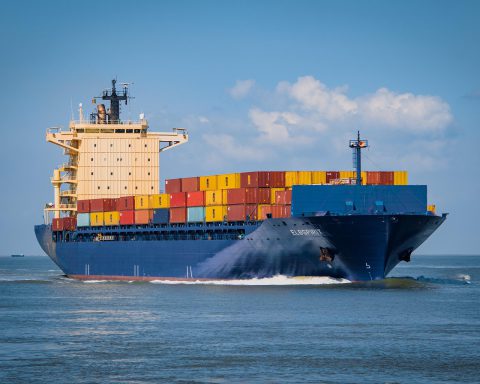This Sunday, 7 May, the future of the European Union hangs in the balance. Voters will select then the next President of the French Republic, in the second round of the elections.
There are only two choices on the ballot: Emmanuel Macron of the newly founded and centrist En Marche! (Onwards) party, and Marine Le Pen of the established far-right Front National.
From the elections to be held across Europe this year, none are so transcendental – or so uncertain.
If Le Pen wins, a staunch anti-EU candidate, she has promised to hold a “Frexit” to withdraw France from the EU. The country’s exit would certainly spell doom for the 60 year old regional integration project, as France is a core founding member of the EU and the bloc’s second largest economy.
Even if centrist Macron has a good lead in the polls, with about 61% of voters favoring him, Le Pen can still pull a Hail Mary and land a surprise victory. (Remember Hillary?). At least 39% of the electorate backs Le Pen in the second round, which is a much better electoral base than Germany’s far-right party, the AfD, which is trailing in the polls with 8% of support. This ensures that a “Deutschexit” remains as probable as an alien invasion.
Because of the French election’s transcendence for the EU, here are 3 key factors that could determine whether Macron wins and gives the EU the second wind it most desperately needs.

1) Le Pen is a far-right candidate with far-left economic policies
The right-left political divide is getting obsolete. Le Pen definitely shows this, since it is difficult to say that she is a traditional far-right candidate, unlike her father Jean-Marie Le Pen.
Monsieur Le Pen espoused anti-immigration and nationalist policies (consistent with the far-right), and he was very neoliberal as well. While the new leader of the Front National did keep her father’s views on immigration and nationalism, she added economic policies normally associated with the left. This gives her broader appeal than what her father or other far-right parties across Europe ever had.
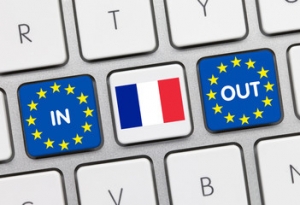
Marine Le Pen appointed very anti-neoliberal and nationalistic economic advisers. Hence, one of her central policies is leaving the EU and the Eurozone, as a way to take France out of globalization, which according to her is hurting France’s working class. In fact, she did very well in the first round thanks to working class support, which – like in the case of Brexit – is a voting group that does view global integration as a threat to their livelihoods.
Macron, on the other hand, did well with urban, middle-class, and liberal-minded voters. In fact, both candidates are squarely either for globalism (Macron) or against it (Le Pen). They are not pick-and-choosers like more traditional party candidates have been. For example, the left has traditionally been pro-globalist as far as immigration goes, but against it regarding international commerce.
2) Macron defeated Le Pen in Wednesday’s televised debate, her last chance to gain ground in the polls
French presidential debates follow a different style than those seen in the United States, but they are an even bigger deal in the European nation than across the Atlantic. Last Wednesday night it was Le Pen’s last major chance to show the French public that she is a better candidate and, most importantly, to win over supporters of the defeated far-left candidate, Jean-Luc Mélenchon.

Mélenchon was the only other anti-EU candidate espousing a similar economic plan as Le Pen, and he did well in the first round by getting about 19% of the votes. Le Pen needs to get his supporters behind her to become the resident of France’s presidential palace for the next five years. However, polls showing viewer perceptions of the televised debate said that about two-thirds of Mélenchon supporters saw Macron’s performance as “more convincing.”
Most voters in general felt the same way. This means that Le Pen lost her last big shot at convincing voters to support her (and James Comey doesn’t work in France…).
3) The Obama Factor and getting Macron supporters to vote
Barack Obama has openly endorsed Emmanuel Macron. He has been backing him for a while though. What’s more, some of Macron’s campaign advisers volunteered in Obama’s 2008 successful presidential campaign and designed a data-based strategy (like the Democrats in the US) that tries to garner a broad voter coalition.
It is no wonder that Macron’s liberal and globalist policy proposals mirror that of the popular former US president.
Obama’s clear endorsement of Macron will not turn Le Pen supporters against her. What it might do is give a needed impulse for Macron-inclined voters to show up at the polls on Sunday. And this is the name of the game: Macron’s victory is ensured only if turnout is high; well over 70% of the electorate needs to show up at the polls.
Remember, remember the 8th of November
It’s Macron’s first election, and running with a newly founded party on a centrist platform; a first in French politics. Poll numbers look good for the 39 year old former economy minister, but his supporters need to show up to vote. Le Pen’s voters will be voting en masse bright and early the coming Sunday, rain or shine. They are motivated folks. (Remember Trump?)
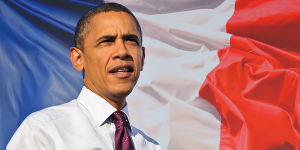
A Macron win would give new impetus for the EU as a liberal project in light of Brexit and Trump. It would also mean that we would see Obama in Paris more often.

